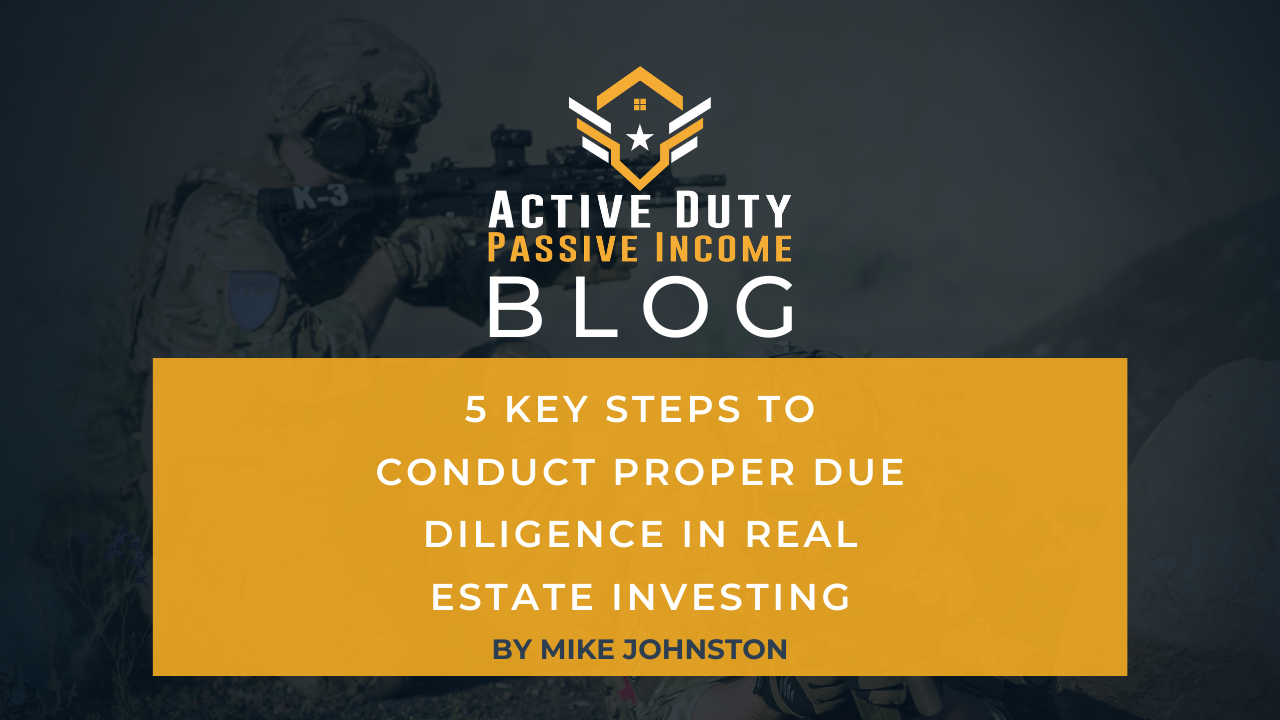Property investors and future homeowners have some things in common–mainly that they both shouldn’t rush important decisions. The worst thing you can do when you’re shopping for a property is to convince yourself that you’ve found the home of your dreams without exploring other options in the market–or without doing your due diligence. There’s no telling what kind of problems might be hiding for unsuspecting or inexperienced buyers, and once these problems emerge, they can make your life, well, difficult–to put it mildly.
Still, real estate is one of the best investments you can make, but you need to know how to conduct thorough research and examine all options to find a property with the highest ROI potential according to your long-term goals. With that in mind, here are the five key tips you need to follow to conduct proper due diligence when shopping for properties.
How to Conduct Due Diligence in Real Estate Investing? (Step-by-step)
Due Diligence Step 1: Research the neighborhood
There’s no point in scheduling a viewing if you don’t like the neighborhood, so before you allow yourself to fall in love with a property, you need to research its surroundings first. The criteria you choose to set for the neighborhood will depend on your current and long-term goals, as the neighborhood needs to be able to grow and evolve alongside your family. If, on the other hand, you’re an investor looking into the most appealing residential properties, then you have to know if the neighborhood has (or will have) everything the modern homeowner is searching for.
Be sure to obtain key insights such as the local crime rates, culture, neighborhood amenities, general safety, local climate, and the property’s proximity to stores, recreation, etc. If the neighborhood looks promising, then you can move on to the property itself.
Due Diligence Step 2: Research the property’s title
Before you book a home inspection, be sure to conduct a title search of the property. There’s no point in investing in a property inspection or the property itself if the title is not clean. Many problems could come out of the woodwork if you allow any debt, liens, or other outstanding financial obligations from the previous owners to fall on your shoulders. If the title is clean, great, you can move on to the next step, but if it’s not, then you have to talk to the seller.
Ask the seller about the title and any encumbrances it might have, and see how you can resolve them in a way that benefits both parties. However, leave nothing to chance and be sure to obtain an owner’s title insurance to protect yourself from any potential financial burdens that you haven’t discovered during the research process. This will also help you with getting better loan terms during acquisition.
Due Diligence Step 3: Scrutinize the property from top to bottom
Okay, so the neighborhood is safe and has everything you need, the title is clean, now’s the time to scrutinize the property itself. But instead of conducting a typical home inspection, you want to delve deeper into the entire process to find out if this is truly the best investment you can make. This is something that Australian investors and homebuyers have been doing for years now, so let’s use them as a prime example.
In the Land Down Under, investors will first talk with experienced buyers’ agents in Sydney and other costly cities and regions to discover every little detail about the property, conduct a professional home inspection, and get actionable advice regarding their investment and the projected ROI. A buyer’s agent will be able to tell you if your investment will truly pay off, and if you should be looking into other properties.
Due Diligence Step 4: Compare financing options
Another crucial step is to compare all of your financing options. As a future homeowner, your options may be limited to a few mortgage and loan types, which you need to pay back in a limited timeframe–plus interest. But, if you’re an investor, you can explore other options such as joint investment ventures, various banks, fix-and-flip loans, and more. What’s important is that you research all options or talk to your buyer’s agent on the best ways to finance the property before you make any down payments.
Due Diligence Step 5: Talk with an insurer
Depending on your goals and whether you plan to live on the property or to rent it to tenants, different insurance policies will apply. It should go without saying that you need to obtain proper insurance to safeguard your investment, which means that the property has to meet the insurer’s minimum requirements.
This also means that you need to talk to the insurer and the seller to bring the property up to the desired standards quickly. There are several options you can explore, such as homeowner’s insurance, dwelling insurance, and vacant property insurance. Compare multiple insurance premiums to find the policy with the best coverage.
Wrapping up
Finding the ideal property means doing your due diligence instead of looking for a property to “fall in love with” at first glance. With these tips in mind, go and conduct the research necessary to make the most cost-effective decision and find the ideal property for your needs.
About the author: Mike Johnston is an avid blogger and content writer with a focus on real estate, home improvement, and the construction industry. He is a regular contributor to the Smooth Decorator blog.








